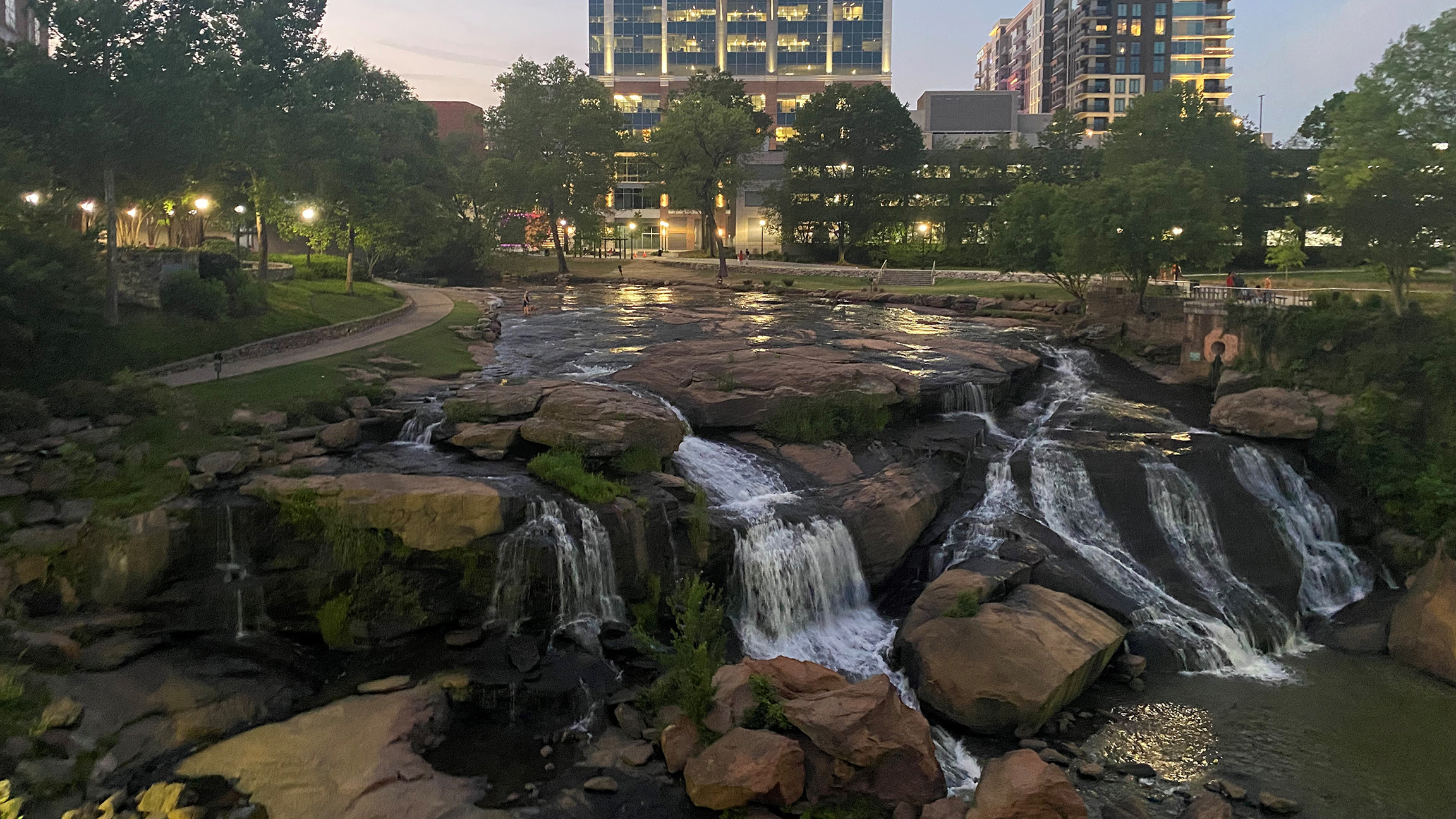
AUWRC ATTENDS THE UCOWR/NIWR ANNUAL CONFERENCE
Several Auburn University Water Resources Center (AUWRC) staff attended the 2022 Annual Water Resources Conference hosted jointly by the Universities Council on Water Resources (UCOWR) and the National Institutes for Water Resources (NIWR) in Greenville, SC including AUWRC Director Eve Brantley, Alabama Water Watch Director Mona Dominguez, and AUWRC Programs & Communications Coordinator Rachel McGuire.
The Universities Council on Water Resources (UCOWR) was founded in 1964 as an expansion of the Universities Council on Hydrology. UCOWR is a consortium of academic institutions and affiliates invested in water resources research, education, and outreach that is steered by a Board of Directors with daily operations maintained by an Executive Director and support staff, located at Southern Illinois University Carbondale.
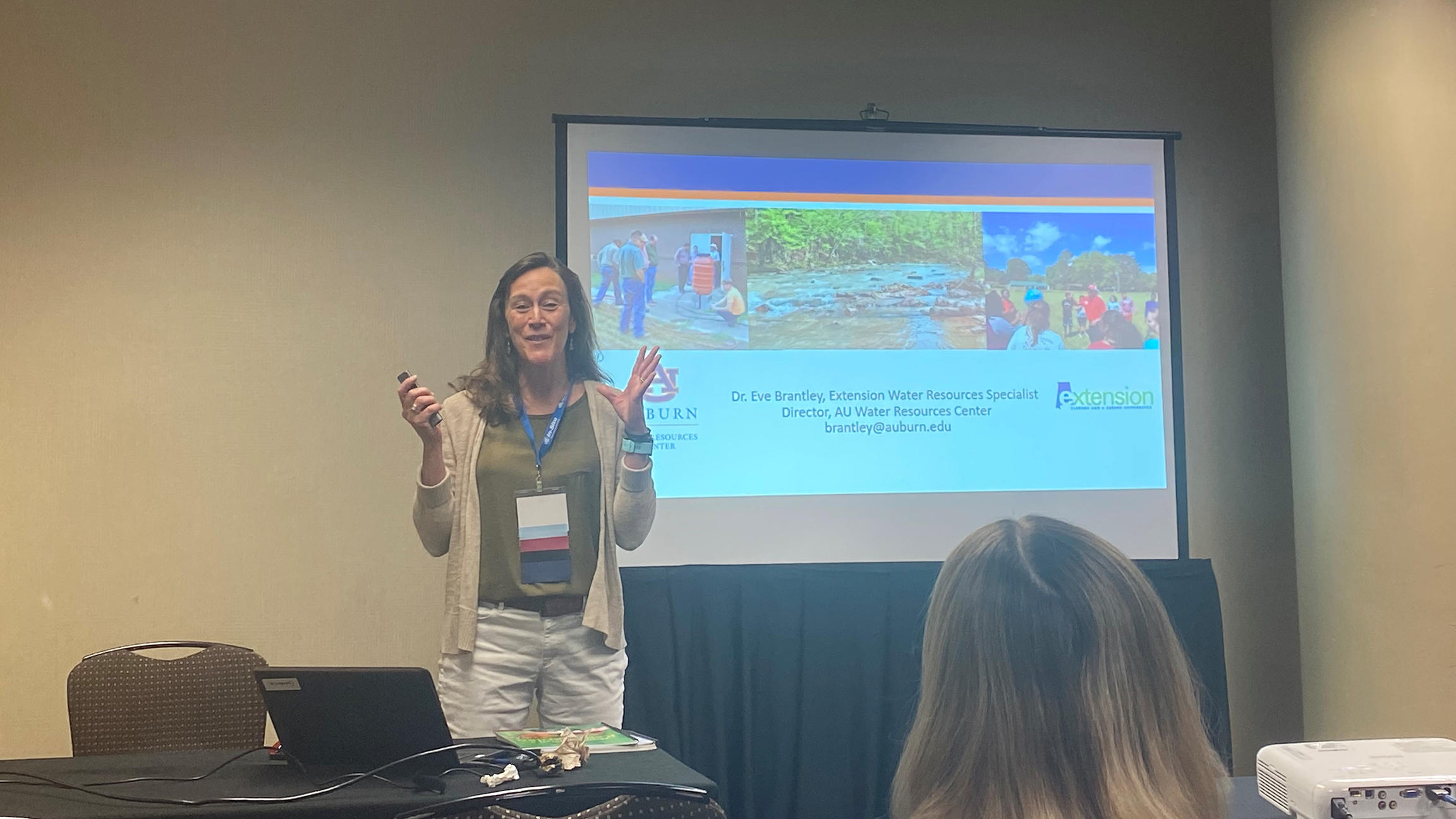
AUWRC Director, Dr. Eve Brantley, presents during the 2022 UCOWR Annual Conference. Photo Credit: Rachel McGuire
Conference attendees represented academia, state and federal agencies, municipalities, and the private sector. Water Resources session topics included modeling, agricultural conservation practices and water quality, protecting human health, engaging stakeholders, assessing and managing water through climate extremes, education, sustainable irrigation practices, watershed-based planning to reduce pollution and protect surface water quality, coastal flooding, wastewater treatment, opportunities for international collaboration, stream improvement practices, building resilience in water systems, addressing challenges of climate change, economics, groundwater monitoring and mapping, human dimensions, policy and law, and many more.
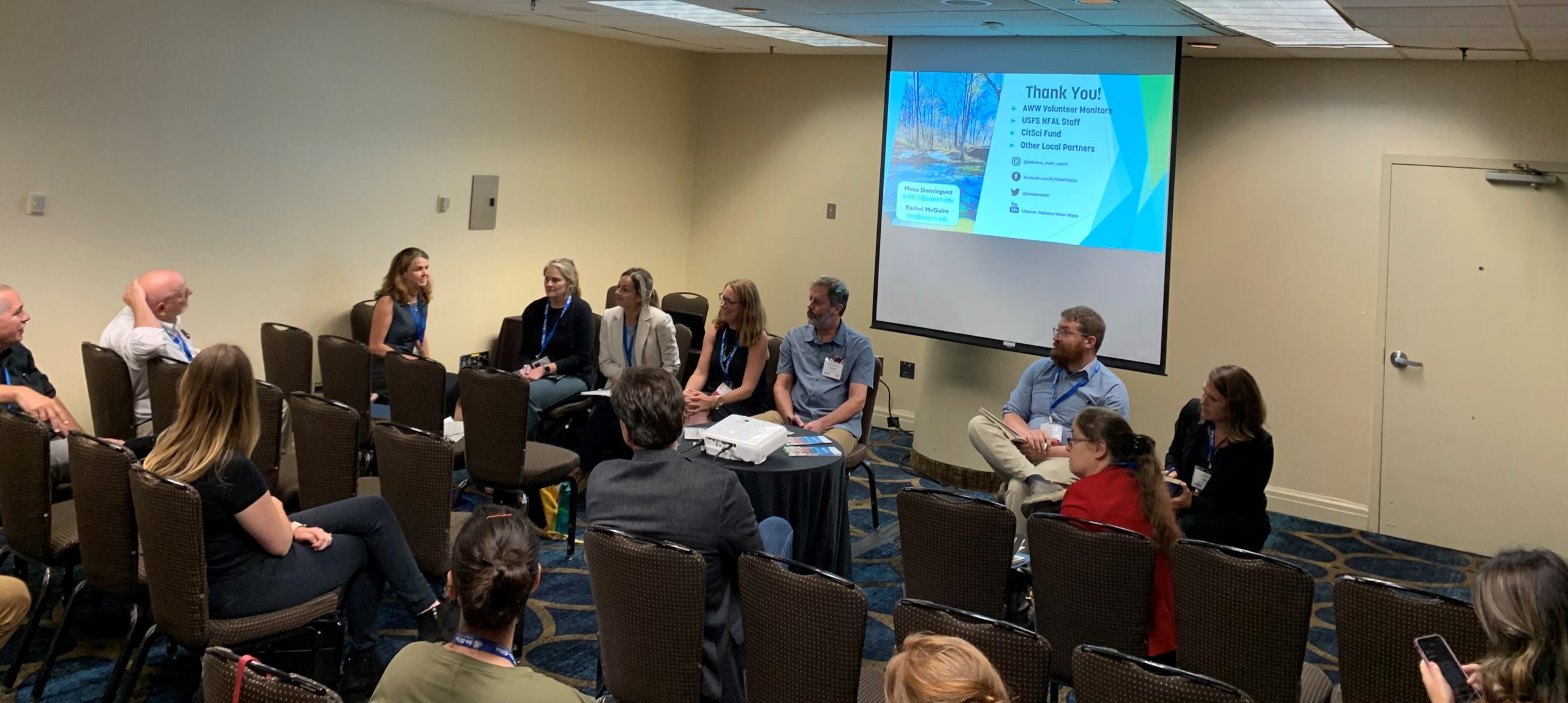
The Citizen Science in Southeast Waters special session concluded with an extended Q&A panel. Photo Credit: Eve Brantley
McGuire and Dominguez organized a special session, Citizen Science in the Southeast’s Waters: Common Challenges, Unique Approaches, involving 5 statewide, citizen science water quality monitoring programs. These programs included Alabama Water Watch, Georgia Adopt-a-Stream, Mississippi Water Stewards, South Carolina Adopt-a-Stream, and Watershed Watch in Kentucky.
Specific challenges addressed by the special session panel included volunteer recruitment and retainment, COVID-19 related obstacles, specific water quality issues facing the region, and how to encourage use of volunteer collected data by agencies and institutions. This Session was particularly well-timed as it seems that since the onset of the COVID-19 pandemic in early 2020, an emergence of new citizen scientists has given rise. Volunteers wishing to be a part of something meaningful and productive, during a time we were, in so many cases, required to be apart, put projects and other aspects of life on hold. One could argue that the citizen scientist has never been more valuable! The AUWRC (by way of AWW) plans to continue this regional-scale collaboration with citizen science water quality monitoring programs.

There were also plenty of opportunities to explore downtown Greenville (both structured and spur-of-the-moment!). A highlight of the downtown area is the famous Falls Park on the Reedy River (see below).

Falls Park in downtown Greenville along the Reedy River. Photo Credit: Rachel McGuire
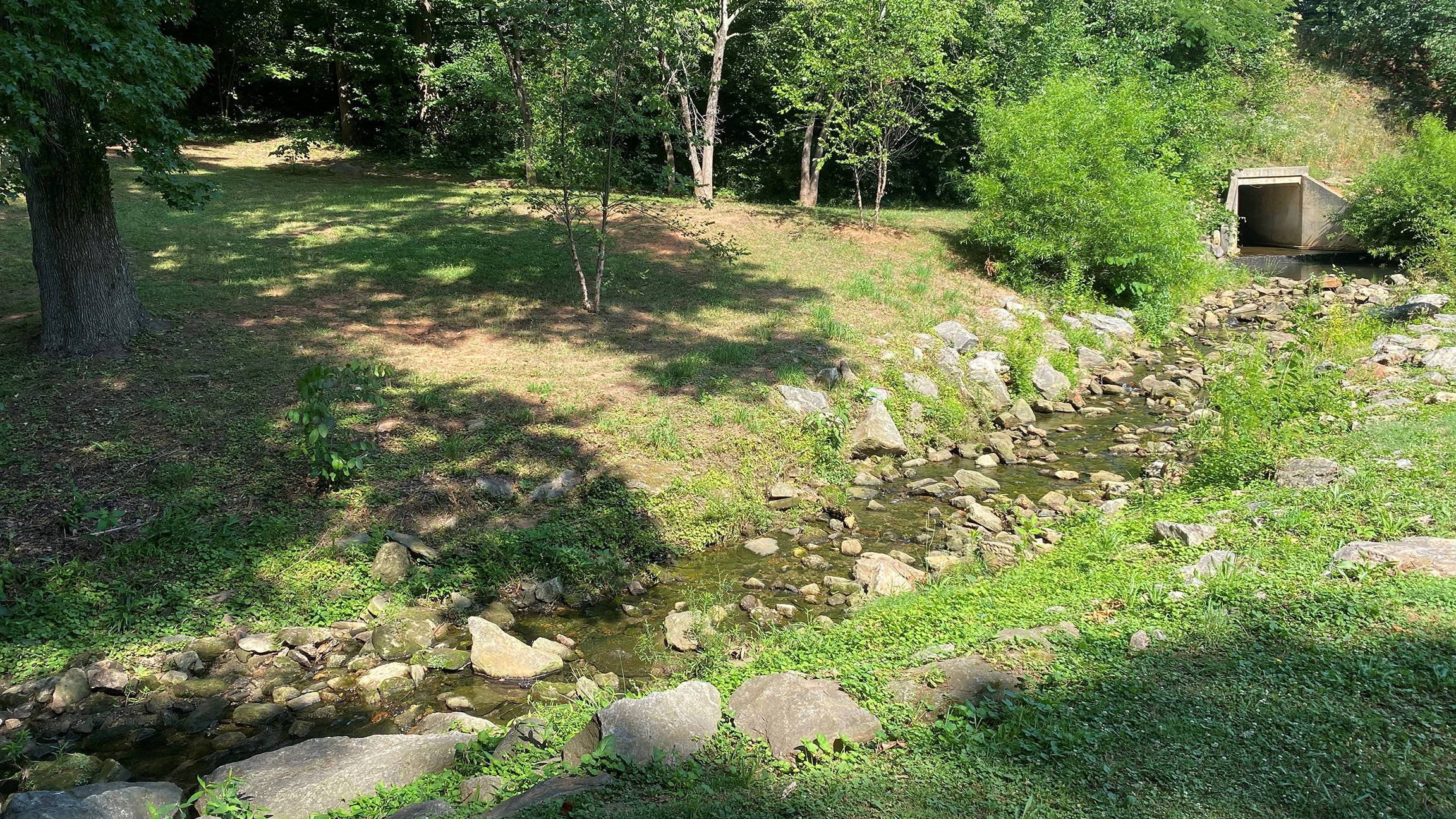
Stream Restoration in Greenville’s McPherson Park. Photo Credit: Rachel McGuire
River Walks were held during the conference in partnership with Friends of the Reedy River. McGuire and Dominguez attended a River Walk to Greenville’s historic McPherson Park that was established in 1884. A tributary of the Reedy River runs through the park, a portion of which has been restored by Friends of the Reedy River and other local partners. Other park BMP’s include permeable pavers, bioswales, and curbless, permeable parking spaces.
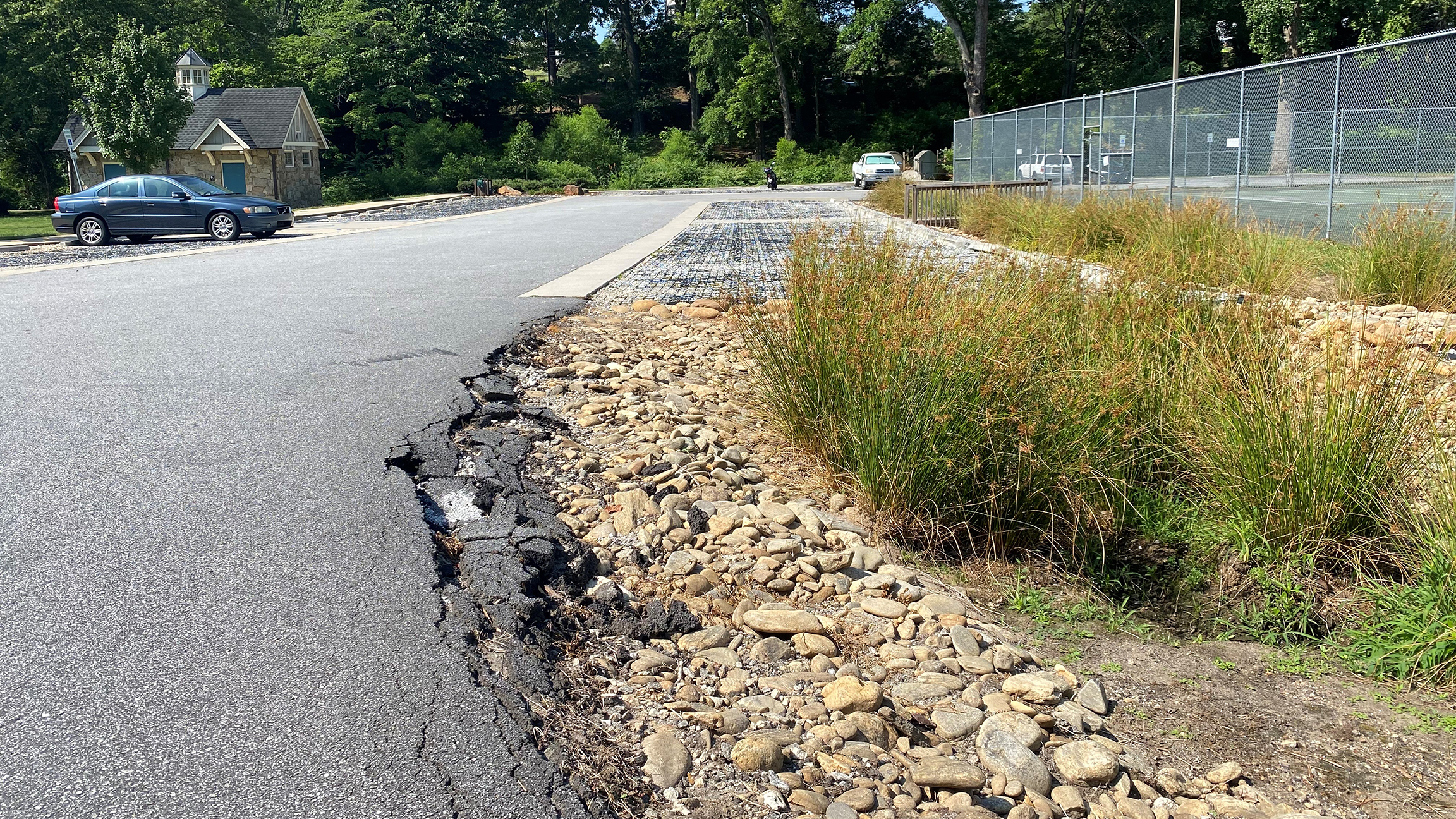
Stream Restoration in Greenville’s McPherson Park. Photo Credit: Rachel McGuire
